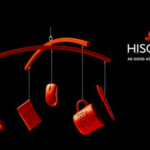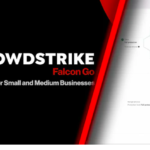Getting a mortgage is one of the biggest financial decisions you’ll make. When looking at mortgage options, Federal Housing Administration (FHA) loans are popular due to their low down payment requirements. But are FHA loans a good idea for you? Here’s what you need to know about the pros and cons of FHA loans to decide if one is right for your situation.
What is an FHA Loan?
An FHA loan is a mortgage insured by the Federal Housing Administration. Here are some key features of FHA loans:
- Low Down Payment: You only need a 3.5% down payment on an FHA loan, compared to conventional loans that typically require at least 5-20% down. This makes FHA loans attractive to buyers with limited funds for a down payment.
- Lenient Credit Requirements: FHA loans have more flexible credit standards than conventional loans. You may qualify with a credit score as low as 580 and a bankruptcy or foreclosure in your past.
- Low Monthly Mortgage Insurance: FHA loans require mortgage insurance, but rates are capped at 0.85% of the loan amount per year. On a $200,000 loan that’s just $141 per month.
- No Prepayment Penalties: You can pay off an FHA loan early without penalty. This isn’t the case with all loan types.
- Loan Limits: FHA loans have county-specific loan limits, but maximum caps nationwide are typically around $420,000. Loan limits vary by area.
The Pros of an FHA Loan
1. Lower Down Payment Requirements
The biggest perk of an FHA loan is that you only need a 3.5% down payment. This makes homeownership more accessible for buyers without the 20% down required for conventional loans.
For example, on a $300,000 home:
- FHA Loan: $10,500 down payment
- Conventional Loan: $60,000 down payment
As you can see, the difference is substantial. If you don’t have a lot saved for a down payment, an FHA loan allows you to buy sooner.
2. More Flexible Credit Requirements
FHA loans are available to buyers with lower credit scores and past loan issues. The minimum credit score is just 580 compared to 620 or higher for conventional loans.
If you have a bankruptcy or foreclosure on your record, you can still qualify for an FHA loan a few years later. Wait times are just 1-2 years after a foreclosure and 2 years after bankruptcy.
3. Lower Monthly Mortgage Insurance
All FHA loans require mortgage insurance. The good news is FHA mortgage insurance rates are lower than with conventional loans. Here are current rates:
- FHA Loans: 0.85% of loan amount per year
- Conventional Loans: 0.5% – 1% of loan amount per year
On a $200,000 loan, FHA mortgage insurance would be $141 per month ($200,000 x 0.85% / 12). Overall cheaper than what you’d pay on a conventional loan.
4. No Prepayment Penalties
FHA loans allow you to pay off your mortgage early without penalty. This isn’t always the case with non-FHA loan types.
The option to make extra payments or refinance can save you thousands in interest over the loan term. Having prepayment flexibility is key.
5. Refinancing is Easier
For FHA loans, you only need to have made 6 months of payments before refinancing is allowed. For conventional loans, it’s typically 12 months.
If mortgage rates drop soon after you get an FHA loan, you can refinance faster. You don’t have to wait an entire year.
6. Low Minimum Credit Score Requirement
As mentioned earlier, you only need a 580 FICO score for an FHA loan. The minimum for conventional loans is around 620.
If your credit score is under 620, an FHA loan allows you to get approved and start building home equity. A few years later, you can refinance into a conventional loan once your score is over 620.
7. Down Payment Assistance Programs
First-time buyers may qualify for down payment assistance programs with FHA loans. These programs provide grants, loans, or seconds mortgages to cover your down payment requirement.
Down payment help makes homeownership possible if you don’t have 3.5% to put down on your own. Be sure to research programs available in your state.
The Cons of an FHA Loan
While FHA loans offer key benefits, there are some downsides to consider as well:
1. Higher Interest Rates
Government-backed FHA loans typically have interest rates 0.5% – 1% higher than conventional mortgage rates. Over the long run, a higher rate can cost you tens of thousands in extra interest.
Shop lenders to find the best FHA rate available. Compare to conventional loan quotes to see the rate difference.
2. Mortgage Insurance is Required
All FHA borrowers have to pay mortgage insurance for the entire loan term. With conventional loans, you can often cancel PMI at 20% equity.
Be prepared to budget the monthly mortgage insurance premium until you refinance or pay off the loan. It increases your total payment.
3. Strict Home Condition Requirements
To qualify for FHA financing, homes have to pass an FHA appraisal. The appraisal guidelines are stricter than conventional loans.
Any visible problems or defects must be repaired prior to closing. This can delay the process if issues arise.
4. Upfront Mortgage Insurance Premium
In addition to monthly mortgage insurance, FHA borrowers have to pay an upfront insurance premium of 1.75% of the loan amount. This is charged at closing.
On a $200,000 loan, it would add $3,500 to your upfront costs. Conventional loans don’t have this fee.
5. Loan Limits Vary by County
FHA loan limits depend on what county you live in. Maximum loan amounts can range anywhere from around $300,000 to over $600,000.
If you need a jumbo loan over $420,000, you’ll have to go with a conventional mortgage. FHA loans won’t work due to their lower limits.
6. Refinancing Requires an Appraisal
When you refinance an FHA loan, a full appraisal is required even if you stay with the same lender. Conventional refis often waive the appraisal.
Appraisal costs for a refi can range from $500 – $600. Factor this into your costs if you plan to refinance down the road.
Is an FHA Loan Right for You?
In general, FHA loans are best for borrowers who:
- Have Limited Savings: FHA loans allow a low 3.5% down payment
- Have Lower Credit Scores: Minimum score is just 580
- Value Easy Refinancing: FHA loans can be refinanced once you’ve made 6 loan payments
FHA loans may not be the right fit if:
- You Have 20% or More for a Down Payment: A conventional loan avoids mortgage insurance
- You Have Excellent Credit: Prime borrowers get lower rates with a conventional mortgage
- You Need a Jumbo Loan: FHA loans have maximum loan limits
Shop carefully and run the numbers to see if an FHA loan or conventional mortgage works better for your situation. Consider both the upfront and long term costs.
Business: Is it a good idea to get a FHA loan?
For real estate investors and business owners, FHA loans can also be a good financing option under certain circumstances.
Benefits for real estate investors include:
- Low down payments on rental properties and multi-family properties
- Easier to qualify compared to conventional investment loans
- Refinancing flexibility if rehabbing and flipping properties
Downsides to weigh:
- Investment properties require 15% down payment (higher than owner-occupied)
- Requires at least 1 year experience as a landlord
- Lower loan limits apply to multi-family buildings
For small business owners, FHA loans offer:
- Funds to purchase or construct a commercial building
- Competitive interest rates and long repayment terms
- Multi-family housing projects allowed
Potential challenges:
- Need strong business credit history and income
- Higher down payment required, around 10-25%
- Limit on loan amount based on type and size of business
Compare all commercial and investment mortgage options before deciding if an FHA loan is your best route. But it can be a viable choice in many business situations with the right qualifications.
FAQs About FHA Loans
1. What is the maximum loan amount for FHA loans?
The maximum FHA loan limit varies by county, but in most areas it is around $420,100. High cost areas can qualify for loans up to $970,800.
2. How long do I have to wait after a foreclosure or bankruptcy to get an FHA loan?
You must wait 1-2 years after a foreclosure and 2 years after bankruptcy and deed-in-lieu. If it has been over these timeframes, you can qualify for an FHA loan if you meet the other requirements.
3. Can I remove PMI from my FHA loan?
No, FHA loans require mortgage insurance premiums for the full loan term. Even at 20% equity, you cannot cancel MI on an FHA loan. Refinancing is the only way to remove it.
4. What FICO score do I need for an FHA loan?
The minimum credit score to qualify for an FHA loan is 500-580. The lowest score a lender will accept is around 500. But the higher your score, the better your interest rate and overall eligibility.
5. Do FHA loans allow gift funds for my down payment?
Yes, FHA does allow gift funds from family members, non-profits, or employers to go towards your down payment and closing costs. Common for first-time home buyers.
In The End
FHA loans provide a great opportunity for buyers to purchase with as little as 3.5% down due to their lenient guidelines. Just be aware that you’ll pay mortgage insurance over the full loan term. Do the math to see if a conventional loan with 20% down ends up saving you money in the long run.
Carefully compare interest rates, fees, and costs too. An FHA loan is best for certain borrowers, but not a one-size-fits all solution. Check if you qualify and crunch the numbers to decide if an FHA-backed mortgage is a good choice for your home purchase.










